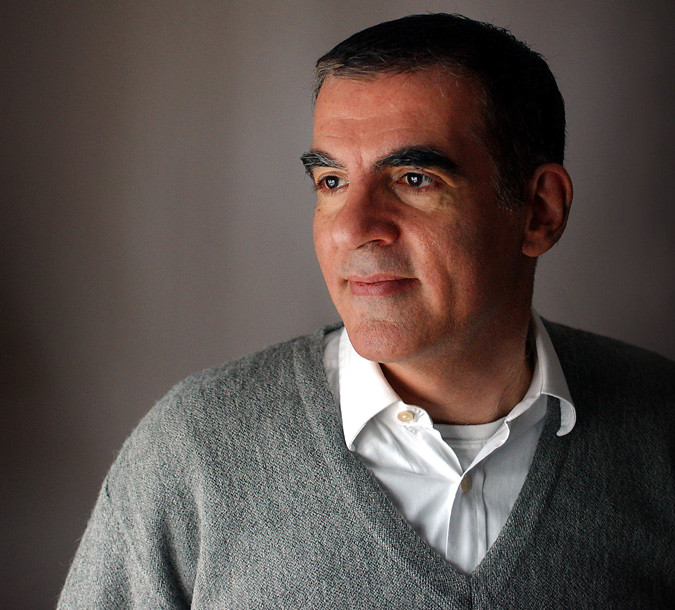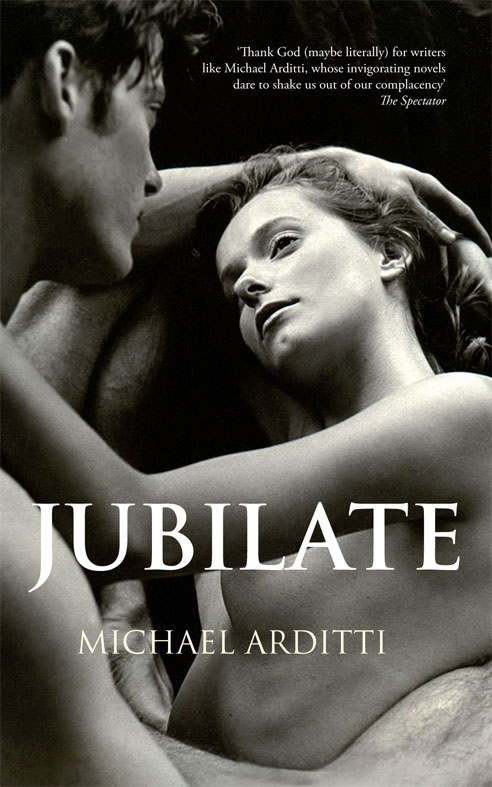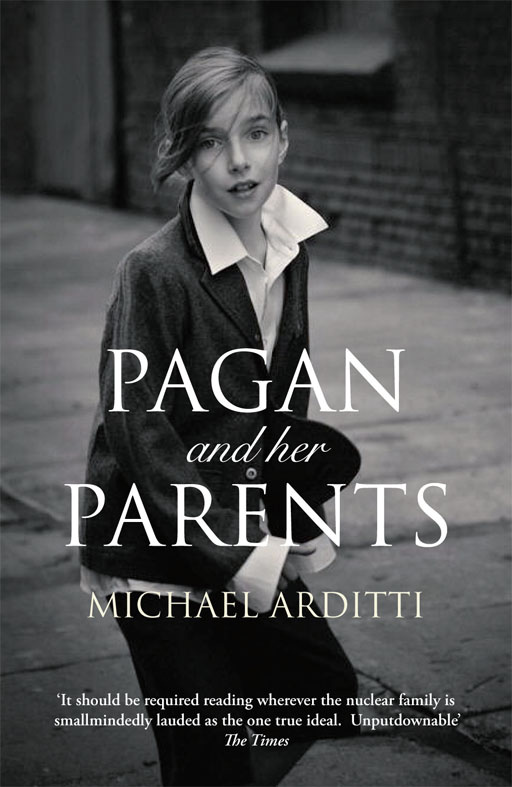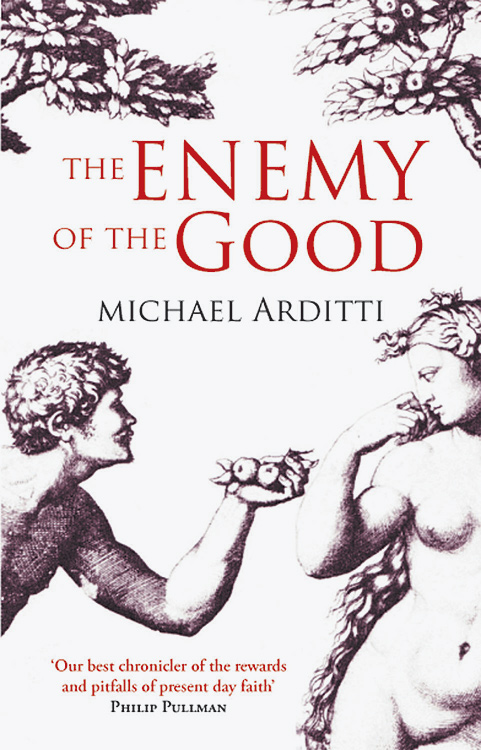The Spy Who Came In From the Seventies
December 9, 2011The Untold War: A British Soldier of Fortune in Iraq
December 9, 2011[three_fourth_last]
An Elegant Writer
[/three_fourth_last]
Described by the critics as one of the bravest contemporary British novelists, Michael Arditti is not just a thinker but also a wonderful observer and story teller who takes his readers on a unique literary journey. Massimo Gava met this elegant writer in London.

[one_half]
MG: When did you start writing?
MA:
I have been writing on and off since childhood. At Cambridge I wrote for student magazines. My first professional writing was dramatic, both for the stage and the radio. I realised quite soon, however, that, being someone who shies away from conflict in everyday life, I wasn’t a natural playwright. In addition, I became a theatre critic for the London Evening Standard and it seemed somehow unethical to submit plays to theatres that I might then be reviewing. So, I gradually turned my attention to fiction.
MG: Was it an easy transition?
MA:
Easier than I had feared. My first novel, The Celibate, about a young ordinand who discovers that life is not as black and white as he had been taught in the seminary, was written in the first person–very much as one writes a character in a play. I soon discovered that such talents as I had were better suited to the expansive world of the novel than to the constricted world of the play.
MG: And you’ve gone on to write six more novels?
MA:
Yes, along with one collection of stories, Good Clean Fun, about which, if I can be so crude as to quote my own reviews, one critic wrote “it’s certainly good and fun but not always clean!”
MG: Speaking of reviews, you’ve been compared over the years to Dickens, Waugh, George Eliot, Graham Greene and Hogarth. How does that feel?
MA:
Well on one level, of course, it feels very pleasant. They’re all great writers (I exempt Hogarth – I think the critic was referring to the satirical qualities of my novel, Easter) but they’re all very different. I would like to think that there are aspects of my writing which evoke all those great names, but as a whole, I hope that it’s uniquely Arditti! If such labels encourage readers to pick up the books then that’s great. But when I read a novel, what I want more than anything else is to hear an original and particular voice. I hope that’s what I give my readers too.
MG: In your case, that comes above all from your explorations of faith. Philip Pullman has called you “our best chronicler of the rewards and pitfalls of present day faith”.
MA:
Yes, I think that’s the accolade of which I’m most proud. I said at the start that I’d written seven novels. Three of them have very little to do with faith. Pagan and her Parents questions the nature of family, after a gay man has to fight various emotional, legal and even physical battles to bring up his dead friend’s child. Unity explores the nature and legacy of fascism through the story of a German director in the 1970’s making a film about Unity Mitford and Hitler. A Sea Change, which is my only historical novel, focuses on a fictitious teenage boy on the fateful voyage of the SS St Louis, a ship taking 900 Jewish refugees from Hamburg to Havana in 1939. That said, four of the novels, The Celibate, Easter, The Enemy of the Good and, now, Jubilate, have, to a greater or lesser degree, focused on faith and they’re the ones that have struck the greatest chord with the public.
MG: So what is it that draws you to faith issues?
MA:
I suppose because they lead on to the biggest issues of all (I hope it doesn’t sound pretentious!): why we’re here, how we live our lives, what’s the basis on which we relate to our fellow human beings, and indeed the whole universe. There was a time when most literature tackled such topics but, now, it’s the exception rather than the rule, which I think is just another reflection of the trivialisation of our culture.
MG: And you’ve ranged widely, not sticking to any one denomination: Anglicans in The Celibate and Easter, Jews in A Sea Change, Anglicans and Jews in The Enemy of the Good and now Catholics in Jubilate. Why is this?
MA:
I suppose you could say I’m an equal-opportunities novelist! As a writer, I enjoy exploring different points of view, and as a liberal, of course, I feel that there’s value in all of them – although it has to be said that I struggled to find it in the fundamentalists in Easter and The Enemy of the Good.
MG: So tell us something about your latest novel, Jubilate, which came out in February to huge critical acclaim.
MA:
The short version is that it’s a love story set in Lourdes. The longer one, well you’ll have to ask me.
MG: Go on then.
MA:
The two protagonists are Gillian, a middle-aged woman who’s taking her brain-damaged husband on a pilgrimage to Lourdes in the hope that he’ll be given a miracle cure, and Vincent, a film director who is making a documentary about the shrine for the BBC. They meet and, in a very short space of time (but then Lourdes is a place which lends itself to intense emotions), they fall in love, which brings them great turmoil. Gillian, in particular, has to decide whether to put her own happiness over her marriage vows, which, in her eyes, she made before God.
MG: You chose to write the book, using a very original structure.
MA:
Yes, the novel is narrated by both Gillian and Vincent – nothing very unusual there. What is unique is that Vincent tells the story forwards while Gillian tells it backwards. As well as enabling both of them to give their point of view, I hope that the structure creates a particularly intimate relationship between the events of the story and the reader. It makes the reader constantly reassess what he or she has previously thought.
MG: I’ve read novels which tell the story backwards but I’ve never read one which tells it both ways and yet at the same time always manages to be so clear.
MA:
Yes, for good or ill, it’s a first. But then I believe that, if you’re trying to say something original, then the structure of the book should reflect that. Remember that the word ‘novel’ has a double meaning – both a work of fiction and something that’s new. I try to do both.
MG: And I’m also amazed to be told that Jubilate is the first novel set in Lourdes since Zola’s Lourdes in 1894. Can that be true?
MA:
Absolutely. I was as amazed as you. Though I should point out that it’s the first serious novel. There have been some hagiographies of Bernadette! Lourdes is a gift of a setting for a novelist. It has such a rich atmosphere, not least because of the enormous amount of faith, love and expectation that people invest in it. Remember that 6,000,000 people visit Lourdes every year and yet there’ve been only 67 accredited miracles. So the odds are smaller than winning the lottery. But then one of the things that Jubilate explores is the nature of miracles. Do they have to be something spectacular like the cure for a serious illness or can they be something as simple but as overpowering as two very broken people falling in love. And, if so, do they have the right to reject it.
MG: It’s also a setting that offers enormous scope for comedy. I never expected to laugh out loud at a novel set on a pilgrimage. But that happens again and again. I don’t want to give too much away, but Vincent’s late-night search for a condom brought tears to my eyes!
MA:
Thanks so much. It’s trite but true that all life is a mixture of comedy and tragedy, and in my own books, the most painful episodes and most intense debates have always been leavened with laughter. What’s more, I found when writing Easter that it’s particularly when people are trying to be most high-minded that they set themselves up for a fall. And that of course is a classic pretext for a comedy. Which is another reason for writing about faith. Then again, naming no names (thank you, Geoffrey Chaucer), I’m not the first writer to find that setting a story on a pilgrimage gives him the scope for a rich and varied cast of characters.
MG: Are you working on something now? Can you tell us what it’s about? Will it also focus on faith?
MA:
The answer to all three of your questions is yes. I’m reaching the end of a novel entitled The Breath of Night, which concerns an English missionary priest in the Philippines during the Marcos era who becomes involved in both liberation theology and the struggle against the oppressive regime. He dies in mysterious circumstances and, thirty years on, people are claiming he’s a saint. A young man is sent out from London to investigate, only to uncover something very unexpected.
MG: And what’s that?
MA:
I’m afraid you’ll have to wait until spring 2013 to find out.[/one_half]
[one_half_last]



[/one_half_last]



